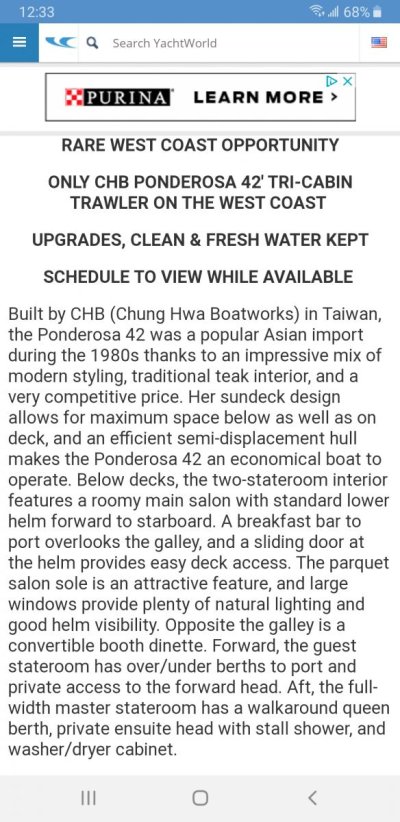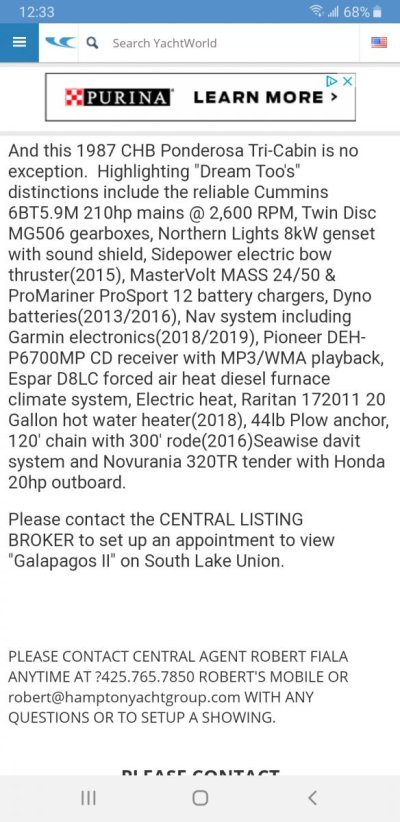If the seller or his broker are in denial or unwilling to address the issues and the issues are more than a couple thousand dollars, walk. If after you walk and you still like the boat, come back and make a new offer. You are at a better negotiating position by getting your deposit back and starting over. Be prepared to lose the boat. If you gotta' have it then you are at their mercy. It's a buyers market for older trawlers and there should be no reason to not to gain an advantage with sellers.
If it less than a couple thousand, have them fix it before closing. If they reduce the price for that repair and additional issues with that repair surfaces, you are out of luck after closing.
When we bought Sandpiper, the surveyor found a lot of soft spots around windows, rot in the portugese bridge and soft spots on the roofs. Way more than anticipated.
The owner was the original owner and had owned the boat for 24 years and in denial of the boats current condition. He was selling his boat because he had dementia, had not used the boat for 18 months and his family wanted the boat gone. He was 86.
He told the surveyor, Matt Harris that there was nothing wrong with the boat and obviously was an incompetent surveyor. Matt Harris is a renowned surveyor of Chinese boats in the PNW and has been featured in a Passagemaker article back in the 90's. We decided to walk because of the number of issues and figured the owner would be difficult and not budge. We got our deposit back.
The owners attorney contacted us and said the owners family wanted the boat sold. He asked us to get three estimates for repair. The boat was in Port Townsend and 3 estimates came in at $56K, $62K and 65K. We were still on the fence leaning towards walking since the owner was being difficult and the number of issues were daunting.
The family left it up to the attorney to work things out. Without any negotiating on my part, the attorney offered to drop the sale price by $65, the highest bid to cover repair. He offered us another $10K reduction in price to compensate us for the time we spent on the deal - 4 months, and for any hidden issues that I might run into later.
We bought Sandpiper for $65K. We fixed the mechanical must do's from the survey in 6 months and went cruising for the summer. We cruised Sandpiper for 8 years before tackling the rot repair.
Since purchase, the portugese bridge, boat deck roof and pilothouse roof have been replaced. I do my own work so the cost of materials totaled less than $10,000. But the portugese bridge took 2 years to complete, the boat deck 1 year and the pilothouse roof 1.5 years. And a bunch of small areas that needed rotten wood repaired was ongoing for a few years.
I work on the boat October to May every year and cruise every summer. We spent many summers in the Broughtons with epoxy coated unfinished projects visible on the boat. We looked like the Clampetts.
Sellers and their broker will be firm if they know you are a new boater, want the boat and have invested in a survey, haul out etc. They will dismiss the issues or make them less to try to get top dollar.



